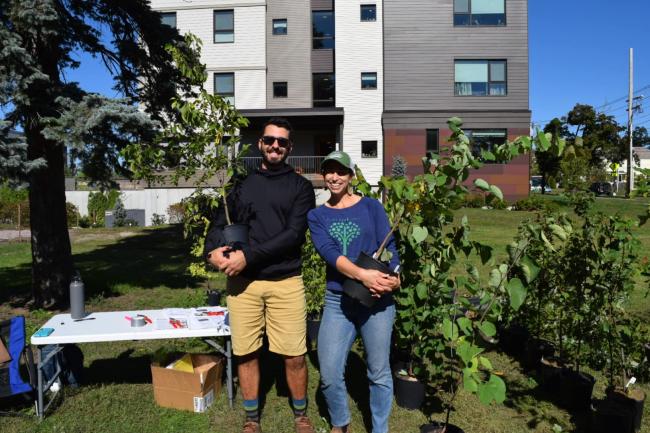April 24, 2020

Vermonters are at greater risk for serious heat-related illnesses, and even death, when the statewide average temperature reaches 87°F or hotter, according to an analysis completed by the Vermont Department of Health. Since 2000, Vermont has had an average of seven days per year when the temperature reached 87°F or hotter and by mid-century, climate models predict an increase of 15 to 20 hot days per year. Vermont residents may be more affected by heat in part because many homes and businesses are not well designed to deal with summer heat.
Using research from the Vermont Department of Health, the Vermont Urban & Community Forestry Program targeted communities in Vermont that are most vulnerable to heat-related illness with a free tree giveaway program, Energy Saving Trees. When planted properly, a single mature tree can save a homeowner up to 20% on energy costs. For homes without air conditioning, shade trees can make the home feel cooler during summer heat.
Energy Saving Trees is a unique program of the Arbor Day Foundation that provides free trees and guidance on where to plant trees to best conserve energy and cool homes. It uses a research-based, easy-to-use online mapping tool that takes the guesswork out of tree planting to maximize the cooling benefits of trees.
Participants signed-up online in advance and picked up their trees at the designated locations, central to each community. Urban & Community Forestry staff shared tips on planting, care, and maintenance with participants. In September 2020, VT UCF worked with the Brattleboro Tree Advisory Committee and Bradford Conservation Commission to give 300 trees to 140 residents of both communities. Since 2017, VT UCF has given away 750 trees to 375 participants located in Newport, Bennington, Barre, Rutland, and St. Albans. This program was funded in partnership with the Vermont Department of Health, Climate & Health Program.
By planting these trees in strategic locations to maximize shade and energy saving benefits, these trees are expected to save participating residents over $275 in energy savings during the first 20 years. The shade and cooling benefits provided to residents will also reduce the likelihood and risk to heat related illnesses. Additionally, these trees will add to a home’s property value, reduce a homeowner’s carbon footprint, improve air quality, reduce stormwater runoff and provide food and shelter for wildlife.